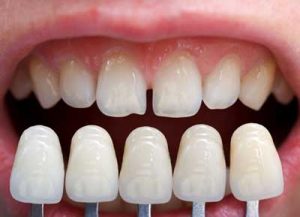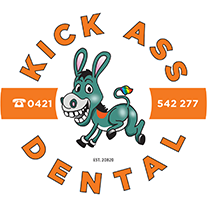Can Veneers Be Covered by Medicare?
Understanding Veneers and Medicare Coverage
When it comes to dental procedures, many people wonder if veneers are covered by Medicare. Veneers are thin shells made of porcelain or composite resin that are bonded to the front surface of teeth to enhance their appearance. While Medicare provides health coverage for eligible individuals, dental treatments like veneers fall under a separate category. In this article, we will delve into the topic and explore whether Medicare covers veneers or not.
The Scope of Medicare Coverage
Medicare is a federal health insurance program primarily designed to provide coverage for medical expenses related to hospitalization, doctor visits, prescription medications, and certain preventive services. However, dental care, including cosmetic treatments like veneers, generally does not fall within the scope of Medicare coverage.
Medicare Part A covers inpatient hospital care, skilled nursing facility care, hospice care, and limited home health services. Part B covers outpatient medical services such as doctor visits, preventive care, diagnostic tests, and durable medical equipment. Part D focuses on prescription drug coverage. Additionally, Medicare Advantage plans, also known as Part C, are offered by private insurance companies approved by Medicare and often include additional benefits beyond original Medicare.

Medicare and Dental Coverage
While Medicare provides limited coverage for certain dental services that are necessary for the treatment of certain medical conditions, it generally does not cover routine dental care, including cosmetic procedures like veneers. Dental services that are considered medically necessary, such as dental surgeries required in preparation for radiation treatment, oral examinations prior to organ transplants, or emergency dental care in hospital settings, may be covered under Medicare.
However, when it comes to routine dental care, preventive services, and cosmetic treatments, Medicare does not provide coverage. This means that if you are seeking veneers for purely cosmetic reasons, you will likely have to bear the cost out of pocket.
Alternative Options for Dental Coverage
Although Medicare may not cover veneers, there are alternative options for obtaining dental coverage. Here are a few possibilities to consider:
- Medicaid: If you qualify for Medicaid, a joint federal and state program that provides healthcare coverage for low-income individuals and families, you may be eligible for dental benefits. Medicaid dental coverage varies by state, so it’s important to check the specific guidelines and limitations in your area.
- Private Dental Insurance: Purchasing private dental insurance is another way to obtain coverage for veneers and other dental procedures. Many insurance companies offer dental plans that cover a range of services, including cosmetic treatments. However, it’s essential to review the terms, conditions, and coverage limits of the plan before making a decision.
- Discount Dental Plans: Some individuals opt for discount dental plans, which are membership-based programs that offer discounted rates for various dental services. While they are not insurance, these plans can help reduce the cost of veneers and other treatments.
- Flexible Spending Accounts (FSAs) and Health Savings Accounts (HSAs): If you have access to an FSA or HSA through your employer, you can allocate pre-tax dollars to these accounts to cover eligible medical and dental expenses. Consult with your benefits administrator to determine if veneers qualify as an eligible expense.
Consulting with Your Dentist
Prior to undergoing any dental treatment, it is always advisable to consult with your trusted dentist. They can provide you with an accurate assessment of your dental needs and guide you through the available options for coverage. A dentist will also be able to provide you with a cost estimate for veneers and discuss potential payment plans or financing options.
It’s important to note that while Medicare may not cover veneers, there may be instances where dental conditions related to the need for veneers could be covered. For example, if you have dental issues resulting from an accident or trauma that requires reconstructive procedures, Medicare may cover the necessary treatments. In such cases, it is crucial to consult with your healthcare provider and insurance company to understand the specifics of your coverage.
In conclusion, Medicare typically does not cover veneers or routine dental care, as it primarily focuses on medical expenses. While this may seem disappointing for those seeking cosmetic enhancements for their teeth, alternative options such as Medicaid, private dental insurance, discount dental plans, or utilizing FSAs and HSAs may provide avenues for obtaining coverage or reducing the cost of veneers. Consulting with your dentist and exploring these options will help you make an informed decision regarding your dental care and financial considerations. For tooth veneers with kick ass dental see here.

Remember, maintaining good oral hygiene through regular brushing, flossing, and dental check-ups is essential for the overall health of your teeth and gums. While veneers can enhance the aesthetics of your smile, they should not be considered a substitute for proper oral care. By prioritizing preventive measures and seeking professional dental advice, you can achieve a healthy and beautiful smile.





